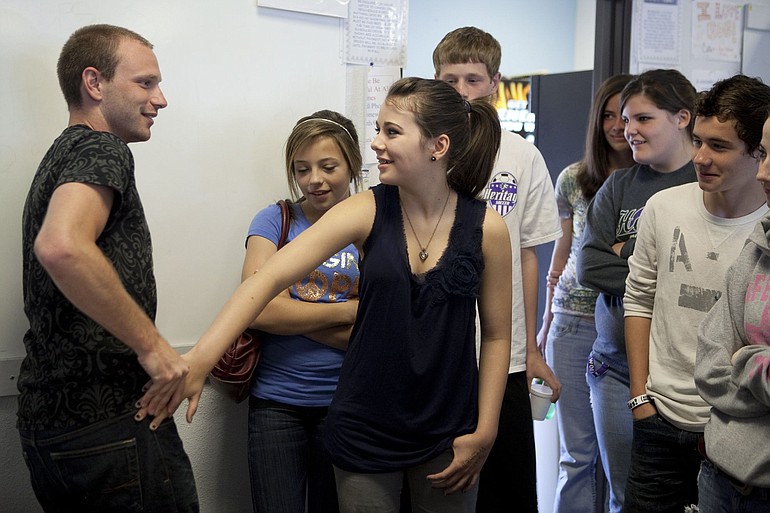In the back of the classroom, Tyler Presnell rhythmically swayed from one side to the other and back again. He was steeling himself against his nerves, preparing to deliver a presentation he’d given at least 100 times before.
For nearly a year, Presnell has been speaking to classes at Big John’s Driving School, 14020 N.E. Fourth Plain Road in Vancouver. But on this afternoon, minutes before an address another mind might find as routine as tying a pair of shoes, he was anxious.
“I’ve done this numerous times, but I never remember them,” Presnell said on June 30. “It’s different every time.”
One speech at a time, Presnell puts his scarred body and damaged mind on display, hoping he can use his gift to spur essential change within the lives of teenage drivers and reform deeply-rooted driving policies.



